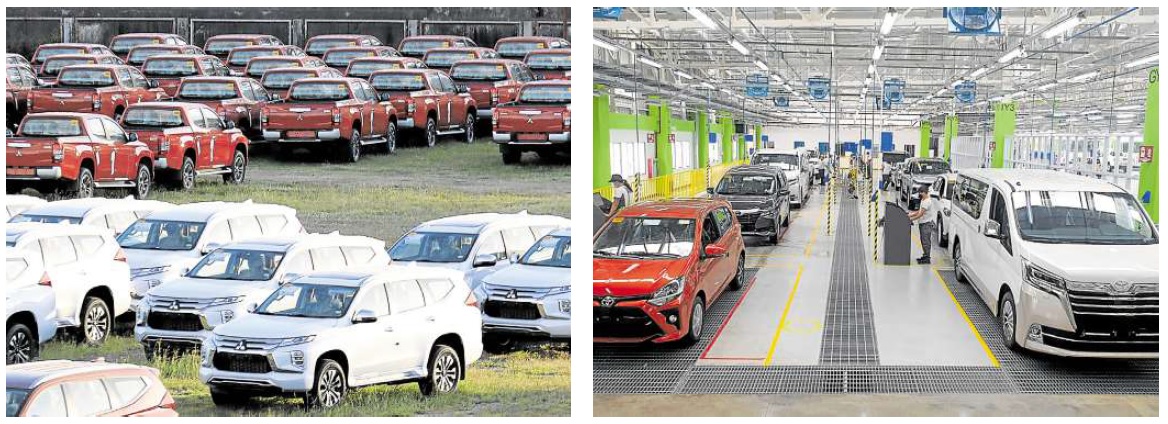
MOBILITY IS BACK Vehicle sales in the Philippines are seen to return to prepandemic levels this year. —CONTRIBUTED PHOTOS
The umbrella group of automotive companies in the Philippines is forecasting vehicle sales to rise 10 to 15 percent this year, basing it on the rising annual trend seen in the number of vehicles sold since the pandemic hit and the industry’s strong performance during the first month of the year.
Chamber of Automotive Manufacturers of the Philippines Inc. (Campi) president Rommel Gutierrez says they see the sales growth trend continuing this Lunar Year of the Rabbit, coming out with what even seems to be a very conservative estimate.
In both 2021 and 2022, the years succeeding the year of the global outbreak of the COVID-19 pandemic, vehicle sales in the Philippines grew 20 percent and 31 percent, respectively. These amounted to 268,488 vehicle units sold in 2021 and 352,596 units in 2022.
Pandemic fallout
For context, 2020 saw a steep drop of 40 percent in sales numbers, with just 223,793 units sold during that tumultuous year, when the country saw one of the longest and harshest pandemic-related lockdowns in the world.
Compare that with the sales level in 2019, the year before the health blight when the industry sold 369,941 units, that number is not that far off and is seen well within the reach of the local auto industry this year.
“It’s really a small gap and we are confident that we will more than hit the 2019 level this year,” says Gutierrez.
Likewise, he says that pent-up demand will continue this year, meaning that they still expect a good number of the population to spend on car purchases after being unable to do so due to the constraints brought about by the pandemic.
Economic reopening
Growth for a number of key Philippines industries, including the automotive sector, may indeed be stronger this year considering that many travel-related pandemic curbs had only been dropped well into the year in 2022.
This means that the net positive effect of lifting such economically restrictive measures for businesses may be greater this year.
To recall, the Philippines only scrapped the negative COVID-test requirement for fully vaccinated inbound travelers in late May of 2022, while the mandatory wearing of face mask while outdoors was dropped almost four months after that, in September.
Still, high inflation and the negative economic effects of a looming global recession, as well as the remnants of the supply chain issues, could temper the growth this year of the automotive industry. INQ